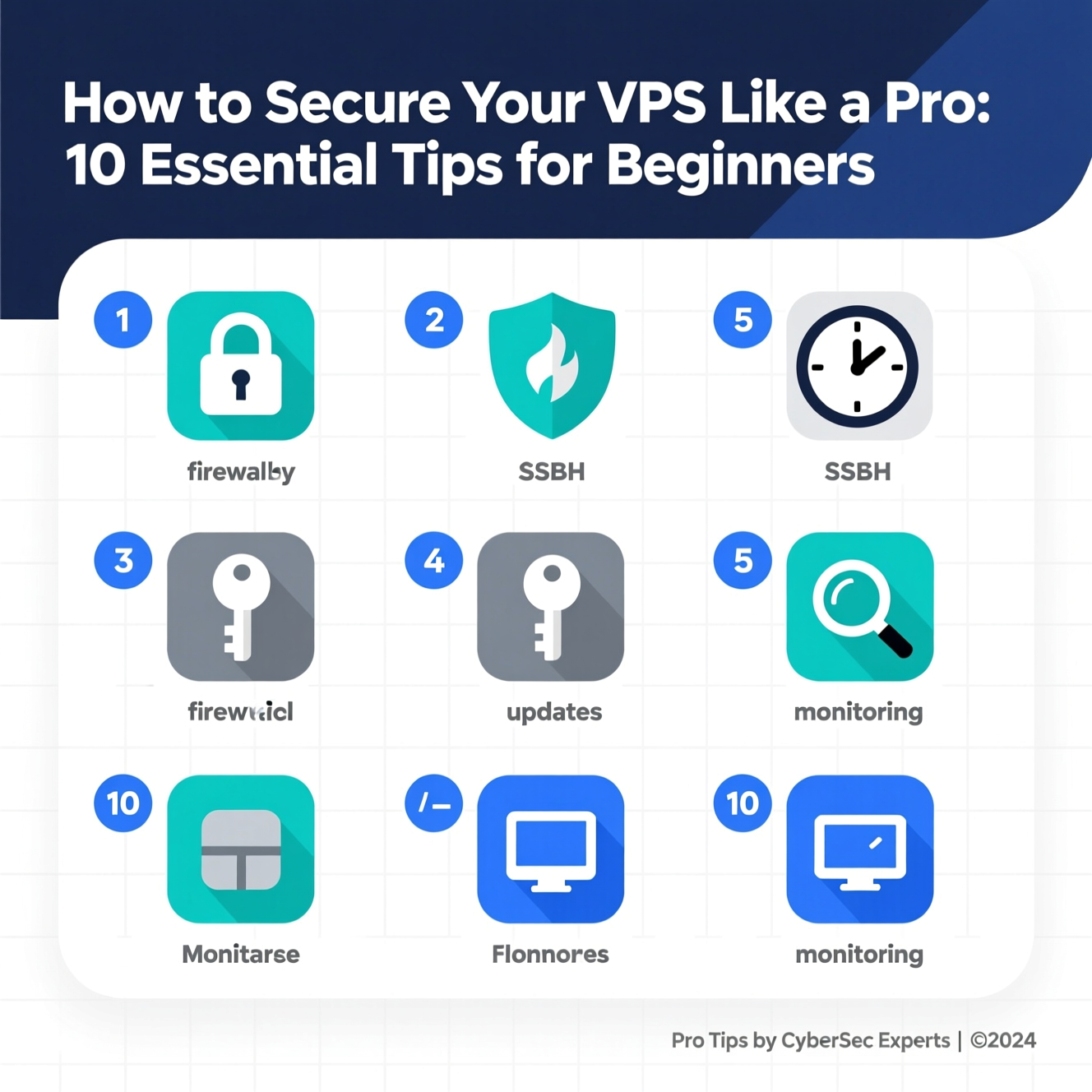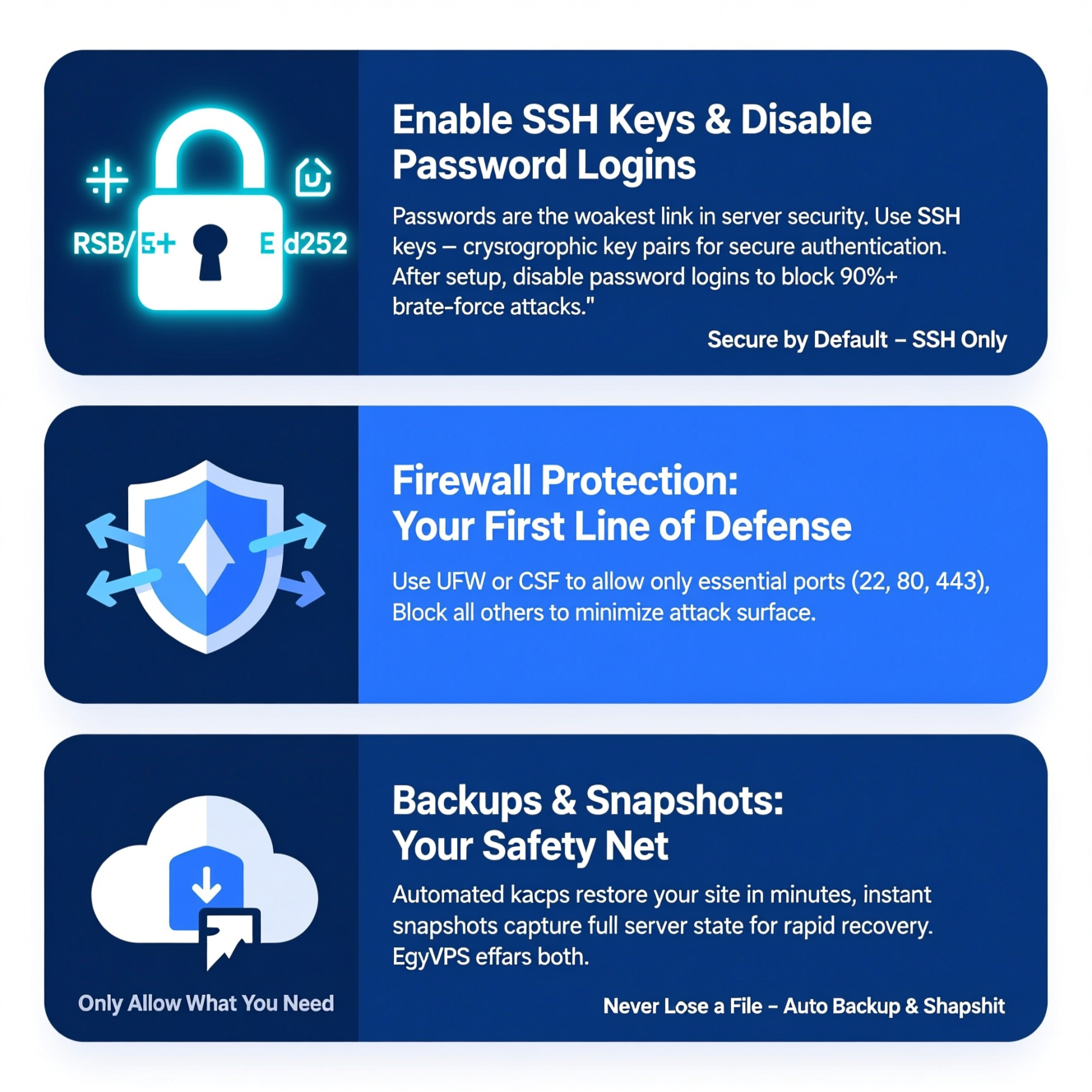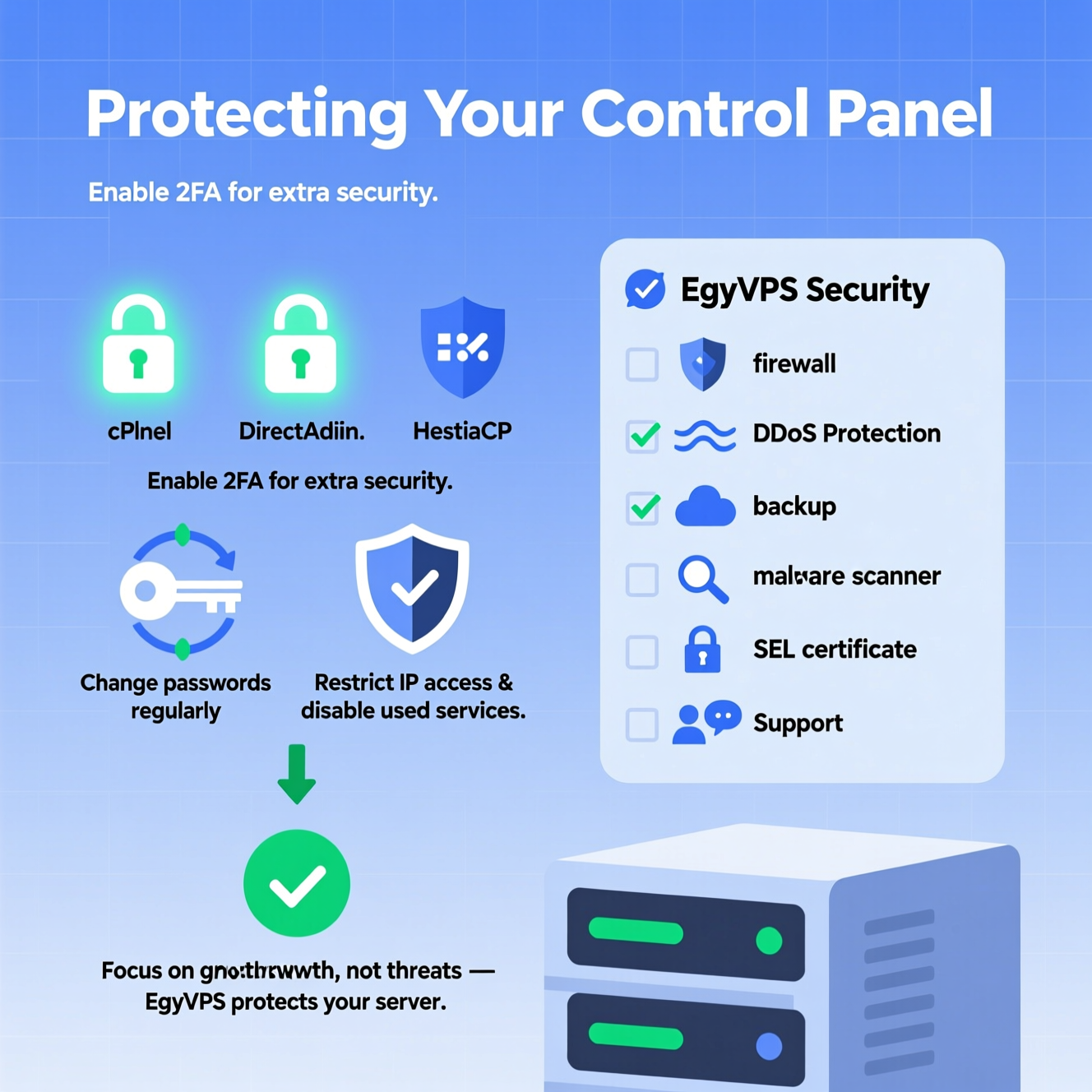In today’s fast-paced digital world, VPS security isn’t a luxury — it’s a necessity. Whether you’re managing an eCommerce website, a personal blog, or a business application, your VPS (Virtual Private Server) is the core of your online presence.
Ignoring its security can lead to data breaches, downtime, or even permanent data loss. Unfortunately, many beginners skip this step after setting up their VPS — which is one of the biggest mistakes you can make.
In this guide, you’ll learn 10 professional VPS security tips that every beginner should apply, plus discover how EgyVPS helps you stay secure effortlessly with built-in protection.

When setting up a new server, most people focus on performance and speed — not security.
But here’s the truth: without strong protection, your VPS can easily be hacked through brute-force attacks or outdated software.
VPS security isn’t just about preventing hacking attempts; it’s about keeping your website stable, trustworthy, and compliant with global data standards.
If you’re hosting locally in Egypt or the Middle East, choosing a provider like EgyVPS gives you the advantage of fast local support and enhanced protection built right into your hosting plan.
Passwords are the weakest link in server security.
Instead, use SSH keys — a secure authentication method that relies on cryptographic key pairs rather than simple passwords.
Once SSH key login is configured, disable password logins entirely to block brute-force attacks.
This simple step alone can stop over 90% of unauthorized access attempts.
A properly configured firewall acts as your server’s first line of defense.
It monitors incoming and outgoing traffic and blocks anything suspicious.
If you’re on Linux, tools like UFW or CSF make it easy to manage firewall rules.
Allow only necessary ports (like 22 for SSH and 80/443 for web traffic) and close everything else — this drastically reduces your exposure to threats.
Even the most secure servers can face issues — that’s why regular backups are essential.
Automated backups ensure your website can be restored within minutes after an attack or crash.
Snapshots go one step further: they capture your server’s full state at a given time, allowing instant recovery if needed.
EgyVPS provides automatic backup systems and instant snapshots, so you never lose a single file.

Every software update includes security patches that fix known vulnerabilities.
Hackers often exploit outdated systems, so make sure to update regularly using commands like:
if you’re using Ubuntu or Debian.
Also, avoid installing untrusted scripts or plugins that might contain malicious code.
Never use your root account for daily operations.
Instead, create a separate user with limited permissions and only switch to root when absolutely necessary.
Each user should have access to specific directories or commands only — this reduces risks from accidental or malicious actions.
If your website handles sensitive user data, you must enable SSL/TLS encryption.
This ensures all communications between your visitors and your VPS are secure and unreadable by third parties.
EgyVPS offers free lifetime SSL certificates with every hosting plan, keeping your customers’ trust intact and your SEO ranking high.
Security doesn’t have to be manual. Tools like Fail2Ban automatically detect and block repeated login attempts, while ClamAV helps detect malware and viruses.
You can also use AIDE (Advanced Intrusion Detection Environment) to track file changes and detect suspicious modifications in real time.
If you’re using cPanel, DirectAdmin, or HestiaCP, enable Two-Factor Authentication (2FA) to add an extra layer of protection.
Change your password regularly, restrict IP access, and disable unnecessary services.
Keep your control panel updated to the latest version to eliminate any known vulnerabilities.
With EgyVPS, you don’t have to be a cybersecurity expert.
Their hosting plans come pre-equipped with top-tier security features, including:
Advanced firewalls and DDoS protection
Automated daily backups
Real-time malware monitoring
Free SSL certificates
24/7 security support
Whether you’re hosting a small blog or a growing business, EgyVPS keeps your server protected so you can focus on growth, not security threats.

1. Do I really need VPS security if my site is small?
Yes! Even small websites are often targeted by automated bots and random attacks.
2. Are SSH keys safer than passwords?
Absolutely. They’re far more secure and nearly impossible to brute-force.
3. How often should I back up my VPS?
Weekly backups are the minimum — daily backups are best for active sites.
4. Does EgyVPS provide built-in protection?
Yes, it includes automated backups, malware protection, and DDoS defense.
5. Can I secure my VPS without technical experience?
Definitely. These steps are beginner-friendly, and EgyVPS automates most of them for you.
هل تحتاج إلى Windows VPS سريع وآمن وبسعر مناسب؟
شركة EgyVPS بتوفرلك سيرفرات ويندوز جاهزة للاستخدام فورًا.
? تواصل معنا عبر: 201001197157
? أو زور موقعنا: https://egyvps.com